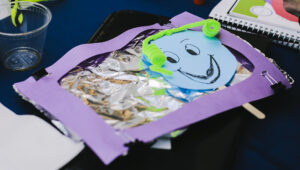Classically trained artists and performers are typically possessed of levels of discipline, rigor and tenacity that are object lessons in the pursuit and achievement of excellence. Their training implies a somewhat linear refining of skills through iterative and gradual improvement, which is a route we commonly associate with success. No doubt, many of us who are managers and leaders in the nonprofit sector will do well to push ourselves and our organizations to new heights by channeling this relentless drive for virtuosity in our work.
But a long time mentor and friend often reminds me of Charles Darwin’s words: “It is not the strongest of the species that survives, nor the most intelligent. It is the one most adaptable to change.” That character trait is often hard won not through perfection but rather through failure. A great example of this comes from jazz, where a compelling model of success—one that we as individuals and organizations need most—comes through the art of improvisation. In a conversation that Harvard professor Sarah Lewis recounts in her book The Rise: Creativity, the Gift of Failure, and the Search for Mastery, Wynton Marsalis likens playing jazz to having a conversation: “You can’t evaluate yourself while you’re having it. You’re playing in time.”
As Lewis reminds us, the brain of a musician who is improvising enters a state of what neuroscientists call “disassociation in the frontal lobe,” suppressing self-judgment and “freeing up all generative impulses … to accept all that comes and add to it, the foibles, the mistakes, the exquisite beauty and joy.” As a result, rather than obsessing over the perfect expression of a fixed score, someone well-schooled in the practice of improv learns to remain confident and open amidst a constantly shifting landscape. Jazz—and the same could be said of improv comedy—integrates failure into the process of creation. People working in any industry can benefit from recognizing that artistic habit of mind and incorporating it into the systems under which they operate.
In a discussion I organized at the Aspen Ideas Festival, Lewis spoke with Fred Dust of IDEO about the potential dangers of a risk-averse society, whether in government, business, education, even the arts. When failure is regarded as a disgraceful scar on carefully constructed reputations, a large potential for innovation and great leaps forward is lost. The myth of linear improvement and the avoidance of risk only hinder our progress. Failures are far more likely to drive improvements.
This is good news for those of us who choose to embrace failure because adaptability, like jazz improvisation, is a virtue that can be exercised and developed over time; it is a way of seeing and responding to a constantly shifting world around us, and it allows us to view failure as a true gift rather than an impossible curse.


